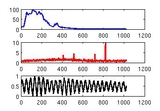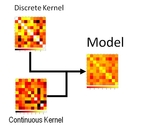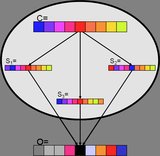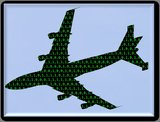
- Resources
- Related Research Areas
- Data Mining and Knowledge Discovery, Diagnostics
The Rotary Dynamics Laboratory at NASA Glenn Research Center has acquired data on simulated engine disks for the purpose of developing crack detection schemes. They have taken data on a baseline disk and on a disk that has a fairly large crack introduced on it. The data consists of blade tip clearance measurements acquired at several speeds for a given duration. The intent is to see if one can detect the change in the center of mass of the disk due to the crack.
How Data Was Acquired: The data presented is from a physical simulator that simulated engine disks.
Sample Rates and Parameter Description: All parameters are sampled once per revolution measuring 32 blade to edge clearances on each revolution. Data is recorded for approximately 3 minutes for each run. The parameters are the revolution measurement, the clock time, the measured RPM, the maximum, average, and minimum gap across all gap sensors, and the measured gap for blade 0 to blade 31.
Anomalies/Faults: Faults include medium and large cracks on the disk.
Discussions
Popular Resources
-
Rotor health monitoring combining spin tests and data-driven anomaly detection methods
A Publication, Nikunj Oza's Collection - 12 years, 10 months ago
Shared By: Nikunj Oza
Health monitoring is highly dependent on sensor systems that are capable of performing in various engine environmental conditions and able to transmit a signal upon ...
-
Propulsion Health Monitoring of a Turbine Engine Disk using Spin Test Data
A Publication, Disk Defect Data - 12 years, 10 months ago
Shared By: Nikunj Oza
On line detection techniques to monitor the health of rotating engine components are becoming increasingly attractive options to aircraft engine companies in order to increase ...
-
A Dataset, Disk Defect Data - 14 years, 11 months ago
Shared By: Nikunj Oza
How Data Was Acquired: The data presented is from a physical simulator that simulated engine disks. Sample Rates and Parameter Description: All parameters are sampled ...










